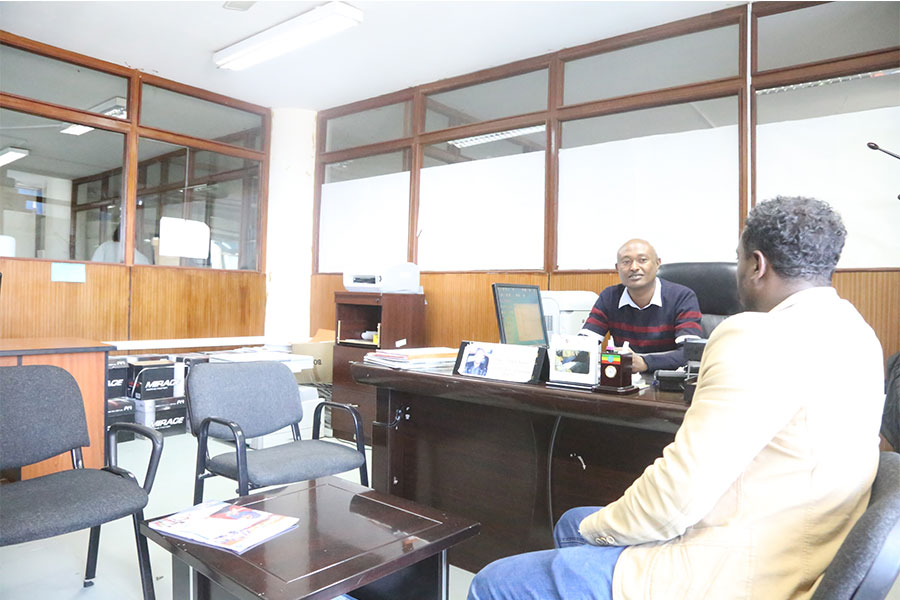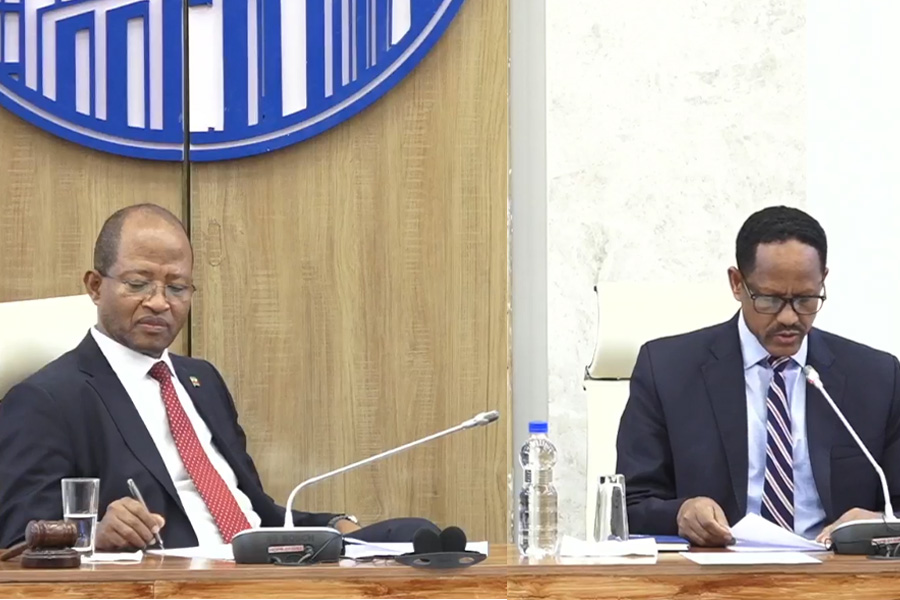
Oct 26 , 2019
By Tibebu Bekele
I have a distinct memory of a conversation I had with a friend many moons ago. He is a few years older than myself and someone we looked up to. He was one of the top leaders in our district of the then-popular political movement the Ethiopian People Revolutionary Party (EPRP). When the Dergue’s offensive against EPRP was unleashed, my friend was among only a few leaders in the district that miraculously lived to tell the story after the others were taken to be shot and killed.
Our conversation took place years later after he was released from many years of imprisonment. I was admiringly speaking about the strong popular support the EPRP enjoyed, especially among the youth. He shocked me by retorting: “It was not youth support. It was mostly juvenile delinquency.”
His point, which I later understood only after looking up what the term meant, was that most of the young people that were supporting the EPRP did not do so because they understood what the party stood for. A lot of them probably did not even read, let alone understand what the party manifesto said. They probably had no idea the kind of government it would form and what life would be like if the party won power.
However, at that age, the excitement of being in the middle of the action, breaking windows without it being thought of as breaking the law was just too exciting to pass up. The self-importance and relevance that comes from feeling that one is a part of a big movement that is seen to be cool is irresistible. That is the way young people are all over the world.
It is the role and responsibility of those that claim to be leaders to make sure that their young followers understand the difference between civil disobedience and lawlessness.
Henry David Thoreau is considered the father of the term "civil disobedience," as he coined it in his 1848 essay. It is an act of passive, non-violent resistance to unjust laws passed by government or an occupying power. The aim is to highlight the unjustness of the status quo and force a concession from the government or occupying power by withdrawing cooperation and resisting unjust oppression.
Many famous movements in history have used this tactic to effect social change. The Boston tea party as one of the movements that contributed to the American Revolution, Gandhi’s resistance to British Rule in India, the US civil rights movement led by Martin Luther King, Jr. and the resistance to apartheid in South Africa can be cited as movements that used civil disobedience successfully to fight oppression and bring about seismic change in their societies.
The common feature in all these movements is the strong moral character of their leaders. They had an unshakable commitment to peaceful resistance and abhorred violence. After all, if the resistance is not peaceful, it is just disobedience pure and simple. It is not civil.
Young people will always be attracted by action. It is the responsibility of leaders to rein in destructive youthful impulses and to not use them cynically to achieve political goals.
The other common feature of these leaders was that they had a vision for the future coexistence of people. They were not just focused on tearing down existing power structures. They had post victory plans for reorganising the society they were struggling to change, not a scorched earth policy that would permanently fracture it.
In current day Ethiopia, many claim to be leading political movements that are employing civil disobedience to bring change for their people. But it is hard to see how targeting civilians who have no say or power to change government policy with violence can be considered a just struggle. Even if they were to win everything they want, would it not be a hollow victory if it plants seeds that make coexistence between people nearly impossible?
PUBLISHED ON
Oct 26,2019 [ VOL
20 , NO
1017]


Editorial | Sep 21, 2024

Verbatim | Oct 19,2019

Fortune News | Nov 04,2023

Fortune News | Jun 11,2022

Agenda | Dec 25,2018

Commentaries | May 02,2024

Fortune News | Oct 03,2020

Radar | May 15,2021

Fortune News | Nov 24,2024

Radar | Mar 11,2024

My Opinion | 131451 Views | Aug 14,2021

My Opinion | 127803 Views | Aug 21,2021

My Opinion | 125783 Views | Sep 10,2021

My Opinion | 123419 Views | Aug 07,2021

Dec 22 , 2024 . By TIZITA SHEWAFERAW
Charged with transforming colossal state-owned enterprises into modern and competitiv...

Aug 18 , 2024 . By AKSAH ITALO
Although predictable Yonas Zerihun's job in the ride-hailing service is not immune to...

Jul 28 , 2024 . By TIZITA SHEWAFERAW
Unhabitual, perhaps too many, Samuel Gebreyohannes, 38, used to occasionally enjoy a couple of beers at breakfast. However, he recently swit...

Jul 13 , 2024 . By AKSAH ITALO
Investors who rely on tractors, trucks, and field vehicles for commuting, transporting commodities, and f...

Jun 28 , 2025
Meseret Damtie, the assertive auditor general, has never been shy about naming names...

Jun 21 , 2025
A well-worn adage says, “Budget is not destiny, but it is direction.” Examining t...

Jun 14 , 2025
Yet again, the Horn of Africa is bracing for trouble. A region already frayed by wars...

Jun 7 , 2025
Few promises shine brighter in Addis Abeba than the pledge of a roof for every family...

Jun 29 , 2025
Addis Abeba's first rains have coincided with a sweeping rise in private school tuition, prompting the city's education...

Jun 29 , 2025 . By BEZAWIT HULUAGER
Central Bank Governor Mamo Mihretu claimed a bold reconfiguration of monetary policy...

Jun 29 , 2025 . By BEZAWIT HULUAGER
The federal government is betting on a sweeping overhaul of the driver licensing regi...

Jun 29 , 2025 . By NAHOM AYELE
Gadaa Bank has listed 1.2 million shares on the Ethiopian Securities Exchange (ESX),...